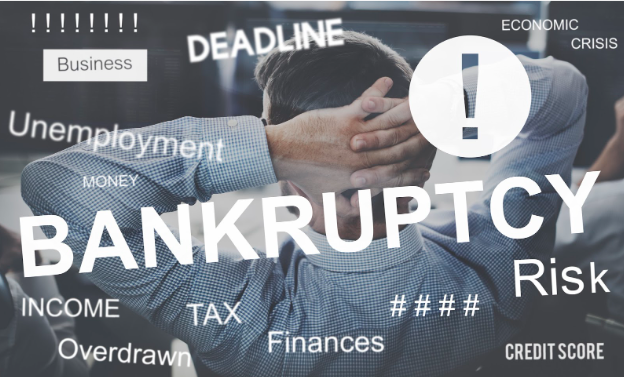
What Does it Mean to Be Insolvent?
Insolvency may sound like a word that brings discomfort. But what does it really mean to be insolvent? Understanding what it means can help individuals and businesses know where they stand. Insolvency happens when an individual or a company can no longer meet their financial obligations to creditors as debts become due. That is, it has become hard to meet basic obligations for your personal or business needs. This situation may be due to poor cash management, financial losses due to emergency, natural disaster, or economic downturns.
The Basics of Insolvency
There is a wide gap between being broke and being insolvent. Insolvency isn’t just about running out of cash; it’s a legal state where someone or a business cannot meet its financial obligations as they become due. Since it’s a legal term, the criteria for declaring insolvency can vary, but it usually involves a situation where the liabilities exceed the assets, and the entity can no longer meet debt obligations.
Insolvency can manifest in two forms: personal and corporate. Personal insolvency just as it sounds, affects individuals and sole proprietors who find themselves unable to discharge personal debts. Corporate insolvency on the other hand has to do with companies and businesses facing financial crisis. Insolvency may lead to filing bankruptcy, restructuring, or liquidation.
Signs of Insolvency
When you are able to identify the early signs of insolvency, it may help in preventing a full-blown financial crisis. Common signs may include cash flow issues that are consistent, defaulting on loans, receiving legal notices from creditors, and so on and so forth. Other early signs might be salient, like reliance on debt for operational expenses, serious drops in revenue, etc.
The Insolvency Process

The first step in dealing with insolvency is thorough review of financial statements and seeking advice from financial professionals. These experts can offer a realistic assessment of the situation and suggest viable options, and they can be able to tell whether you are insolvent or not. Early intervention could help in averting the situation, hence it is important to seek help as soon as possible, so you can avoid formal insolvency proceedings.
After the financial review, and it is confirmed you or your business is insolvent, some steps should be taken. This process involves a finance administrator who will oversee the situation. Their role is to manage the debtor’s assets, deal with creditors, and ensure that the proceedings follow legal protocols. How the process will go will depend on what method is being used to set off debt, the process a bankruptcy proceeding will follow is different from that of a consumer proposal.
The expected goal of any insolvency process is to settle or resolve the financial issue in a way that minimises losses for creditors and provides a way for the debtor to recover and start afresh. Outcomes can include liquidation of assets, restructuring plans that allow businesses to continue operations and gradually pay off liabilities. For individuals, it may be bankruptcy or a consumer proposal.
Recovering from a Personal Insolvency
One of the fastest consequences of insolvency is the impact it has on one’s credit score. Recovering from personal insolvency is not a rocket science. If you filed for a consumer proposal for example, you are starting your journey towards financial stability and you will need to start practicing healthy financial habits. The first step towards rebuilding financial stability is creating a strict budget and following a financial plan that prioritises essential expenses (needs) and debt repayment.
This is important because once the immediate downturn of insolvency is resolved, the focus shifts to financial management and avoiding future insolvency. Because if care is not taken, one person can be insolvent over and over again, and that is not a good place to be. It’s important to give room to rigorous financial planning and monitoring. Effective financial management post-insolvency involves more than just recovery—it requires transforming financial strategies to ensure long-term stability and growth. Your efforts should gear toward rebuilding your credit score, since that is one thing that shows your financial stability and responsibility.
Bottom Line

Facing financial distress can lead to anxiety, stress, and even depression. The stigma associated with insolvency can affect one’s self-esteem and personal relationships. It is important for individuals going through insolvency to seek not only financial guidance but also psychological support. Mental health professionals can provide coping mechanisms that help individuals manage the emotional toll of insolvency.
Before you conclude on what step to take as regards your finances, you should consult with a debt expert. Sometimes, things may not be as bad as you think they are. Speaking with a debt counsellor at EmpireOne Credit can offer you hope and you will be able to get the knowledge and support you need to go through this phase. We are empathetic, friendly, and non-judgemental. When you speak with us, your debt can be reduced by up to 80%, and interest will stop immediately. Call us at (416) 900-2324 to schedule a free consultation. Being debt-free feels good!





